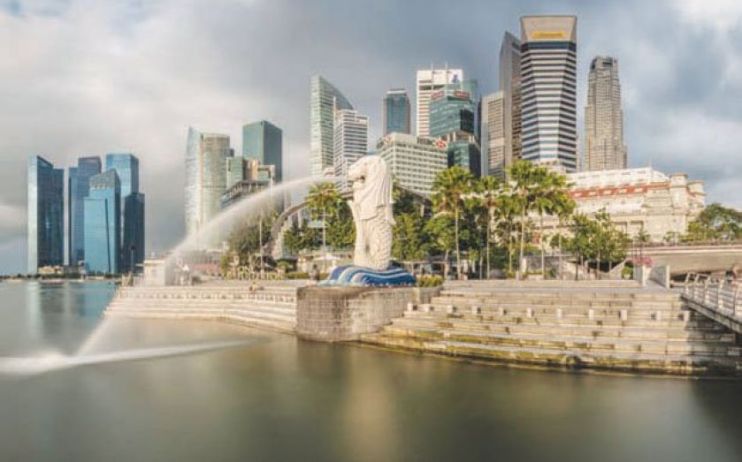Post-Brexit travel: New £200 ‘Global Britain tax’ on flights to destinations more than 5,500 miles from UK

Government plans for a new so-called ‘Global Britain tax’ will make it harder and more expensive for British businesses and investors to forge important new relationships with markets outside Europe, with up to £200 in additional taxes being put on the cost of flights, business leaders warned today.
In fact, passengers flying to fast-growing destinations over 5,500 miles away will face a cumulative annual bill of nearly £1bn based on 2019 pre-pandemic flight data, according to an analysis by the Global Britain Commission, shared with City A.M. this afternoon.
That represents a £44m bill increase compared to the existing air passenger duty regime.
The destinations includes a range of potential key trading partners for post-Brexit UK, including heavy hitters such as Australia, New Zealand, Japan, South Korea and Argentina.
Moreover, several of the world’s fastest-growing emerging economies will also be hit, including the Philippines, Malaysia and Vietnam, the group warned.
Countries caught up in the new tax
| Country | Distance from UK (miles) | Passengers to country (2019) | Growth rate forecast, 2022-2025 (%) | Annual ‘Global Britain tax’ (£m) | Has a trade deal with the UK? | CPTPP members |
| Singapore | 6739 | 1623243 | 2.7 | 4.1 | Y | Y |
| South Africa | 5600 | 1438785 | 1.5 | 3.7 | Y | |
| Mexico | 5546 | 1132721 | 2.4 | 2.9 | Y | Y |
| Thailand | 5918 | 904351 | 3.8 | 2.3 | ||
| Japan | 5937 | 775204 | 1.3 | 2.0 | Y | Y |
| South Korea | 5500 | 528363 | 2.7 | 1.4 | Y | |
| Malaysia | 6546 | 493956 | 5.4 | 1.3 | Y | |
| Argentina | 6918 | 361259 | 2.0 | 0.9 | ||
| Australia | 10542 | 337996 | 2.9 | 0.9 | Y | |
| Mauritius | 6041 | 218343 | 4.2 | 0.6 | Y | |
| Vietnam | 5733 | 163342 | 6.9 | 0.4 | Y | |
| Taiwan | 6073 | 142910 | 2.5 | 0.4 | ||
| Brunei | 6993 | 127023 | 2.3 | 0.3 | Y | |
| Philippines | 6664 | 111217 | 6.6 | 0.3 | ||
| Chile | 7249 | 93407 | 2.2 | 0.2 | Y | Y |
| Peru | 6317 | 43281 | 3.8 | 0.1 | Y | Y |
| Indonesia | 7271 | 30871 | 5.7 | 0.08 | ||
| New Zealand | 11683 | 17895 | 2.3 | 0.05 | Y |
Post-Brexit trade deals
Since Britain left the European Union over two years ago the Government has started to build new types of relationships with global partners, set out its vision of an independent foreign and defence policy, the so-called Integrated Review, as well as a new Export Strategy.
“By 2030, we will be deeply engaged in the Indo-Pacific as the European partner with the broadest, most integrated presence in support of mutually-beneficial trade, shared security and values,” the Government’s Integrated Review states.
In addition, the Export Strategy reads that “our strategy responds to and anticipates changes in the global economy, by tilting towards the Indo-Pacific.”
Moreover, recently the Trade Secretary, Anne-Marie Travelyan, said that “I look forward to visiting Asia…and flying the flag for Global Britain by holding valuable trade talks with key partners across the Indo-Pacific region and pushing to secure CPTPP accession by the end of the year.
She added: “This is just one aspect of our Indo-Pacific strategy, which will benefit businesses and consumers across every part of the UK and help us to level up at home.”
‘A blow to Britain’
While the government stated the purpose of the new tax was to ‘reduce carbon emissions from aviation’ it will do little to achieve that, but rather, the increased costs may stop these routes flying altogether – routes to destinations that cannot be reached by other means, “giving a blow to Global Britain,” the group said in today’s analysis.
“The answer is not this tax but investing in sustainable fuels to reach these target locations whilst driving emissions down and meeting net zero targets,” they added.
The chair of the Global Britain Commission, Liam Fox MP, a former Secretary of State for International Trade, said today that “taking forward the work on sustainable aviation fuel is a key component of how we can use technology to best effect on our route to decarbonisation.”
Fox warned that “we will not make the transition by punishing those who contribute to our prosperity through trade but by using our innovation, creativity and ingenuity to best effect.”